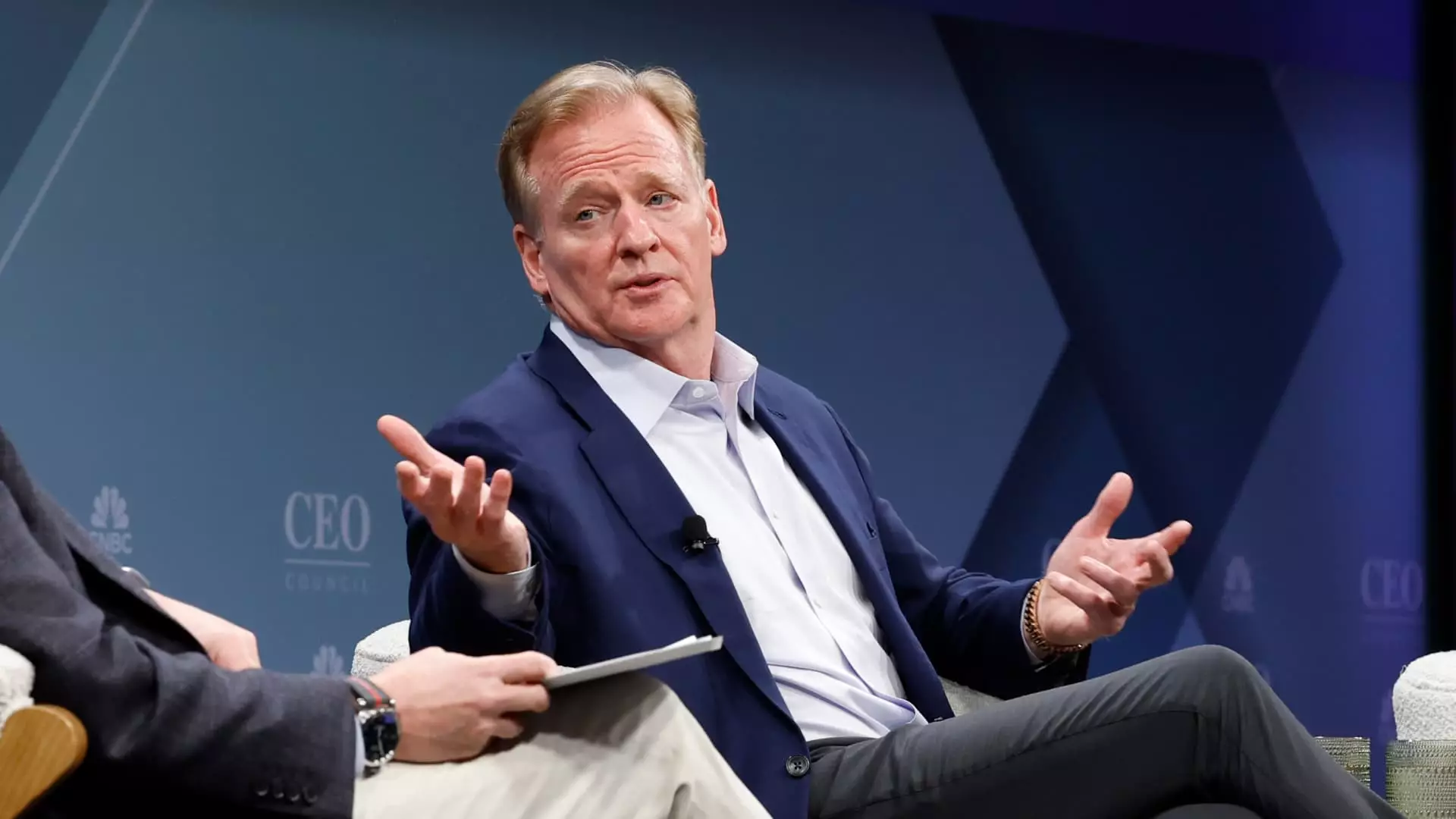In a striking move that signals a dramatic shift in how the NFL perceives its future, Commissioner Roger Goodell has unveiled plans for potentially revolutionizing the league’s international presence. At a recent CNBC CEO Council Summit, he suggested that the NFL could host up to 16 international games a season within the next five years—an audacious aspiration that speaks volumes about the league’s ambitions beyond U.S. borders. With an audience of over 200 million fans domestically, the league is ready to explore the global marketplace more aggressively than ever before. The Commissioner emphasized, “International is an open market for us,” framing this expansion not just as a business venture but as a critical step toward transforming the NFL into a global brand.
While many might view this ambition as an overreach, the NFL’s historical appetite for growth and profitability cannot be ignored. Enthusiastic fans across various countries, from Brazil to Germany, are already primed for NFL games on their home turf. The scheduling of seven international matchups in 2025 reflects just the tip of the iceberg; the league seems poised to capitalize on markets that other sports leagues may only dream of. It’s a bold strategy that illustrates the NFL’s commitment to global football fandom, but it raises an important question: Is this thirst for international expansion sustainable, or is it a precarious gamble that could upset franchise balance at home?
The Economic Windfall of Sports Travel
Alongside Goodell sat Marriott CEO Anthony Capuano, who contributed pertinent insights about the intersections of sports and travel. He highlighted the $50 billion annual revenue generated by sports-related travel, a juicy pie from which the NFL hopes to benefit significantly. Goodell’s remarks, coupled with Capuano’s enthusiasm, suggest a well-calculated move to position the NFL as not just a league of games but as an entire ecosystem of events and experiences that promote tourism and global commerce.
However, this raises a critical issue: In an environment where traveling fans may have competing desires or dwindling discretionary income, how will the NFL ensure that this international expansion does not become a costly overreach? The interdependence between lavish NFL events abroad and realistic consumer spending habits will need careful navigation. In a polarized economy facing challenges such as stubborn inflation and heightened global tensions, the NFL must appeal to a diverse range of fans while ensuring that price barriers do not exclude the very constituents they’re trying to attract.
Private Equity: A Double-Edged Sword?
The other key theme from Goodell’s comments centered around the NFL’s recent embrace of private equity investment—a pragmatic step that may offer liquidity to teams but could simultaneously alter the league’s financial landscape in unpredictable ways. Allowing select private equity firms to acquire stakes in franchises suggests a recognition of the changing dynamics of sports ownership, and it reflects a forward-thinking adaptation to the financial realities faced by many clubs.
Yet, this expansion of private equity involvement also comes with its own set of pitfalls. As team valuations soar—averaging $6.49 billion—there emerges a risk that profit motivation could overshadow the core values that make the NFL so beloved. If private equity players prioritize short-term gains over long-term stability and community engagement, the very fabric of the league could be compromised. This tension speaks volumes about the risks associated with relying on external funding in a traditionally close-knit sports community.
Consumer Sentiment and the NFL’s Resilience
Despite the broader economic pressures facing U.S. businesses, Goodell remains optimistic about consumer interest in NFL content. He is quick to assert that the demand for football remains robust, a claim that echoes the unwavering loyalty of NFL fans. However, this confidence may come off as somewhat naive in the context of historical trends; consumer sentiment can shift markedly, influenced by everything from inflation to socio-political events.
In this regard, the NFL must navigate a complex terrain where shifting economic circumstances could challenge both its existing fan base and its ambitions for international growth. As the league pushes forward with its plans, the hope is that it balances its thrilling potential against the realities of the market. In an era where modern fans care about more than just the game, the NFL’s path forward will require agility, foresight, and an unwavering commitment to its roots.

